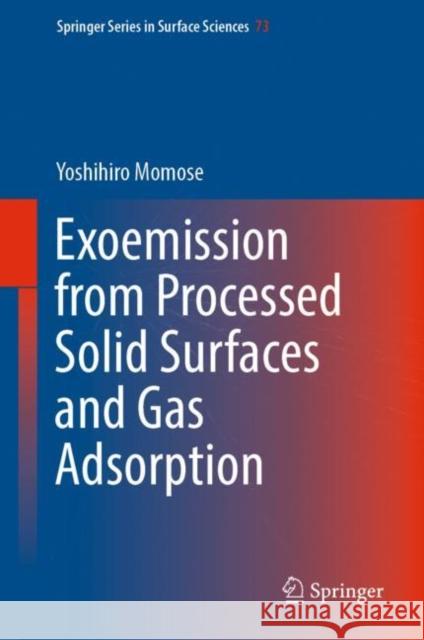Exoemission from Processed Solid Surfaces and Gas Adsorption » książka
Exoemission from Processed Solid Surfaces and Gas Adsorption
ISBN-13: 9789811969478 / Angielski / Twarda / 2022 / 234 str.
Exoemission from Processed Solid Surfaces and Gas Adsorption
ISBN-13: 9789811969478 / Angielski / Twarda / 2022 / 234 str.
(netto: 691,70 VAT: 5%)
Najniższa cena z 30 dni: 655,41
ok. 16-18 dni roboczych.
Darmowa dostawa!
This book focuses on surface activity of electron emission (EE). Prior to protective painting, a steel surface is usually grit blasted or sandblasted to remove scale and contaminants and to roughen the surface. This book emphasizes that such surface treatment causes EE, increasing the strength of paint adhesion. Introduced here are the experimental results of thermally assisted photoelectron emission (TAPE) and tribo-stimulated (rubbing) electron emission (TriboEE) from practical metals after different kinds of surface-treatment processes. A detailed description is given of how Arrhenius activation energies relating to electron transfer through the surface overlayer and also the energy levels of electrons trapped in the overlayer can be obtained, and how TAPE and TriboEE data can be influenced by the chemical properties of that overlayer. This book is composed of four parts: I. Surface treatment processes; II. The principle of EE analysis used for practical surfaces; III. Materials and methods of EE and X-ray photoelectron spectroscopy (XPS); IV. EE and XPS characteristics of practical surfaces. In the last part, the EE and XPS results for metals, semiconductors, and carbon materials are drawn from the author’s own publications. The book will be useful for researchers engaging in surface-treatment processes of various materials.
This book focuses on surface activity of electron emission (EE). Prior to protective painting, a steel surface is usually grit blasted or sandblasted to remove scale and contaminants and to roughen the surface. This book emphasizes that such surface treatment causes EE, increasing the strength of paint adhesion. Introduced here are the experimental results of thermally assisted photoelectron emission (TAPE) and tribo-stimulated (rubbing) electron emission (TriboEE) from practical metals after different kinds of surface-treatment processes. A detailed description is given of how Arrhenius activation energies relating to electron transfer through the surface overlayer and also the energy levels of electrons trapped in the overlayer can be obtained, and how TAPE and TriboEE data can be influenced by the chemical properties of that overlayer. This book is composed of four parts: I. Surface treatment processes; II. The principle of EE analysis used for practical surfaces; III. Materials and methods of EE and X-ray photoelectron spectroscopy (XPS); IV. EE and XPS characteristics of practical surfaces. In the last part, the EE and XPS results for metals, semiconductors, and carbon materials are drawn from the author’s own publications. The book will be useful for researchers engaging in surface-treatment processes of various materials.











